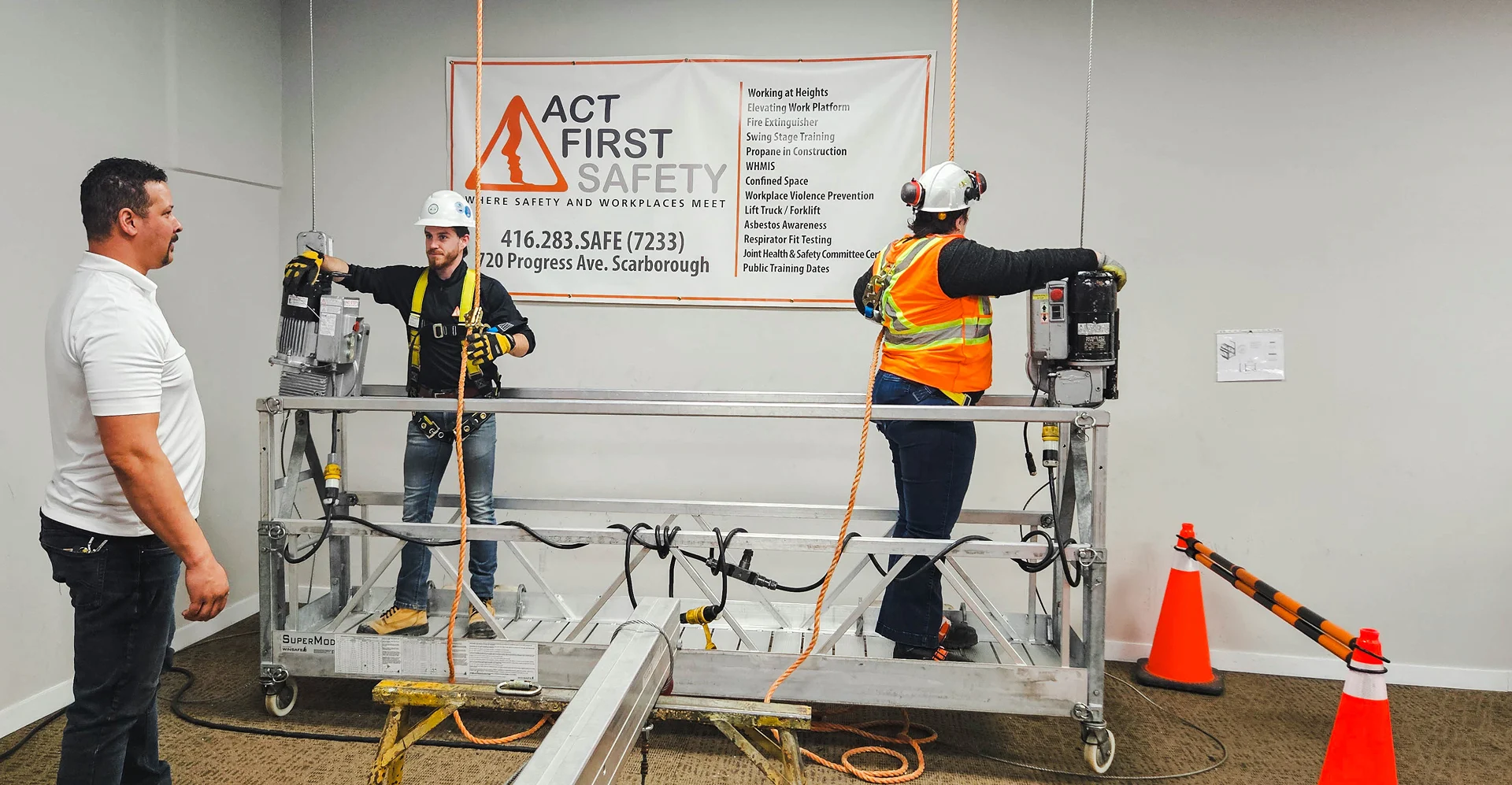When we say 'your safety is our priority,' we truly mean it. Our thoughtfully designed Occupational Health & Safety training programs are built to protect workers across Ontario. We offer practical, inclusive training solutions tailored to the diverse needs of your workforce. By personalizing our services to fit your industry, we not only help you stay compliant and safe, but also build lasting partnerships rooted in a shared commitment to workplace safety.
Book Now
From public to online and private courses, we offer programs geared to equip workers with the knowledge and skills they need to work safely onsite. Each of our courses comes with a certificate of completion, and caters to a wide range of industries including construction, mechanical, electrical, restoration, healthcare, engineering and more. While our in-person courses are available throughout Ontario, our online programs offer completion certification that is valid throughout Canada.

Planning a safety training for your team? Act First Safety has you covered! We understand the critical role workplace safety plays in your field and we are here to serve you with our personalized courses to address your needs.
Founded in 2005, Act First Safety has trained over 100,000 workers over its 20 years of operations. It is our mission to improve workplace safety standards via instructor-led programs that are recognized by Ontario’s Ministry of Labor and other key regulatory bodies that govern safe workplace practices.
A Consumer Choice Award-winner, we are a verified Diversity Supplier through WBE Canada, offering public and private courses throughout the province of Ontario, and online programs across Canada. Highly reviewed, our training programs can be taken onsite at your location or booked at our facility as per your convenience. We offer flexible scheduling 7 days a week, and our facility is close to major highways and transits, making training convenient and easy for all.



















